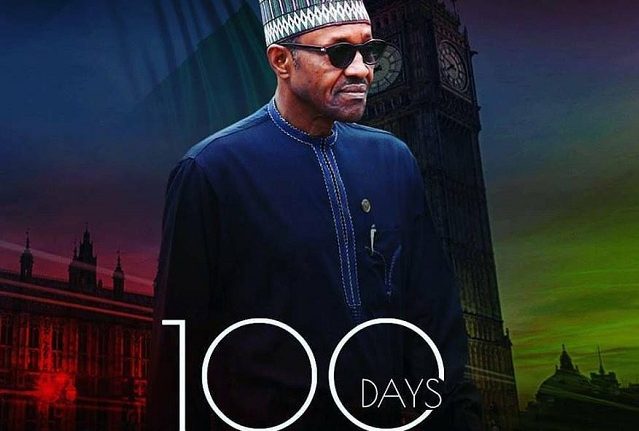To view the subscribed-email version of IP ABC, click here.
Question of the Week (4)
I’m a Nigerian author. Presently, I am writing my second book. The book is titled, Buhari: 100 Days in London and Other Stories. But there is a problem. I discovered 3 other writers who have written articles that are similar to the title of my book. In fact, when I contacted one of the writers about this, he emphatically told me that he was about to finish a book with a similar title. And just as I tried to think it through, a Nigerian movie also with almost identical title popped up in a TV advert. I badly want to use this title. For protection, can I copyright the title of my book?
Answer
The answer is NO.
Copyright law does not protect titles of books or titles of other literary works. Also, titles of both artistic and musical works are not copyrightable. (This may partly explain why so many books out there have the same titles and no one is getting into any legal troubles.)
The reason is that copyright protects only eligible works.
Eligible works are not only required to be artistic works (paintings), broadcasts (radio programs), cinematographic works (films), literary works (books), musical works (songs), or sound recordings (soundtracks, excluding films) but also required to meet 2 vital conditions.
These 2 conditions are as follows:
- Sufficient effort has been expended on making the work to give it an original character; and
- The work has been fixed in any definite medium of expression now known or later to be developed, from which it can be perceived, reproduced or otherwise communicated either directly or with the aid of any machine or device.
The two conditions above are prescribed in section 1(2) of the Nigerian Copyright Act.
Therefore, titles do not meet the first statutory condition above: sufficient effort expended on making the work to give it an original character.
In some other parts of the word, this is similarly described as a significant amount of original expression. Expressions as short as book titles do not qualify as sufficient effort. This is why you can neither stop the writers using identical or similar titles with yours nor protect your title under copyright. Copyright law says you need to do better than that!
But this doesn’t give you or any person the right to title artistic, literary, or musical works just about any existing title.
For instance, your book cannot be titled Buhari: 100 Days in London and Other Stories if that title is another person’s trademark. In other words, if the producers of the film 100 Days in London have trademarked the film title, you are prohibited from using any identical or similar titles for your book. (Yes, some titles qualify for trademark protection, either because those titles are to be used in connection with business or have become so well known they are distinctively connected to a particular author or publisher. This is more so with series and popular titles. Think the series Harry Potter or the popular book Chicken Soup for the Soul. Chinua Achebe’s Things Fall Apart—though with a title which is not original to the author—may qualify for trademark protection considering how well known the book has become globally. (Even Google honoured the author with a doodle recently.)
So the point is this:
Once a book becomes a bestseller or becomes so successful it is recognized as a distinctive brand, the author or publisher may trademark the title. And once trademarked, the title is out of bounds to any person.
Consider this.
If you can come up with a title that is not already in use—particularly in the genre your book falls into—you may consider that title instead. As an author, you need to keep your publications away from avoidable controversies. You also don’t want to confuse your audience.
You wish to consider your options closely? For competent guidance, you may consult an IP lawyer or law firm for professional advice and assistance.
Best wishes
IP ABC™
Follow-up questions, if any, are welcomed.
IP ABC™
IP ABC™ is an initiative of Infusion Lawyers, a virtual intellectual property (IP) and information technology (IT) law firm for the knowledge economy and the digital age.
Disclaimer
Characters, events, names, or places referred to in IP ABC may be fiction. Such fictional contents are meant to aid comprehension. Answers provided on IP ABC are prepared by Infusion Lawyers and are for general purposes only. Answers should not be construed as legal advice or legal opinion under any circumstances. If you have questions or legal problems that you need legal assistance with, please contact your IP lawyer or law firm, or contact Infusion Lawyers if you have none. And whenever any links shared through IP ABC lead to other sites, neither IP ABC site nor Infusion Lawyers’ website incorporate any materials published in such linked sites. We also do not necessarily approve, endorse, or otherwise sponsor such links. ALL external links may have been used for reference purposes only.


